Op-ed: a subjective take on the best and worst in Azerbaijan in 2019
2019 was anything but boring in Azerbaijan.
The news items in this review of the year are ones that delighted or upset me and my friends. And this is not a rating: the first in the list does not mean “the most important”.
The bad
1. The suicide of Elina Hajiyeva and an unfair trial
A school principal, teachers and students led a Baku teenager to suicide through bullying, indifference and maltreatment. After Hajiyeva threw herself out a window, the school director kept the girl for two hours without medical assistance.
And all this went unpunished. The court gave school director Sevinc Abbasova a suspended sentence and “house arrest” – which only means that she should be home by 9 p.m.
After the last court hearing, the director came out of the courtroom with a malicious grin on her face. In this case, the quality of the work of two state institutions – the judicial and the educational system – was embodied in one instance.
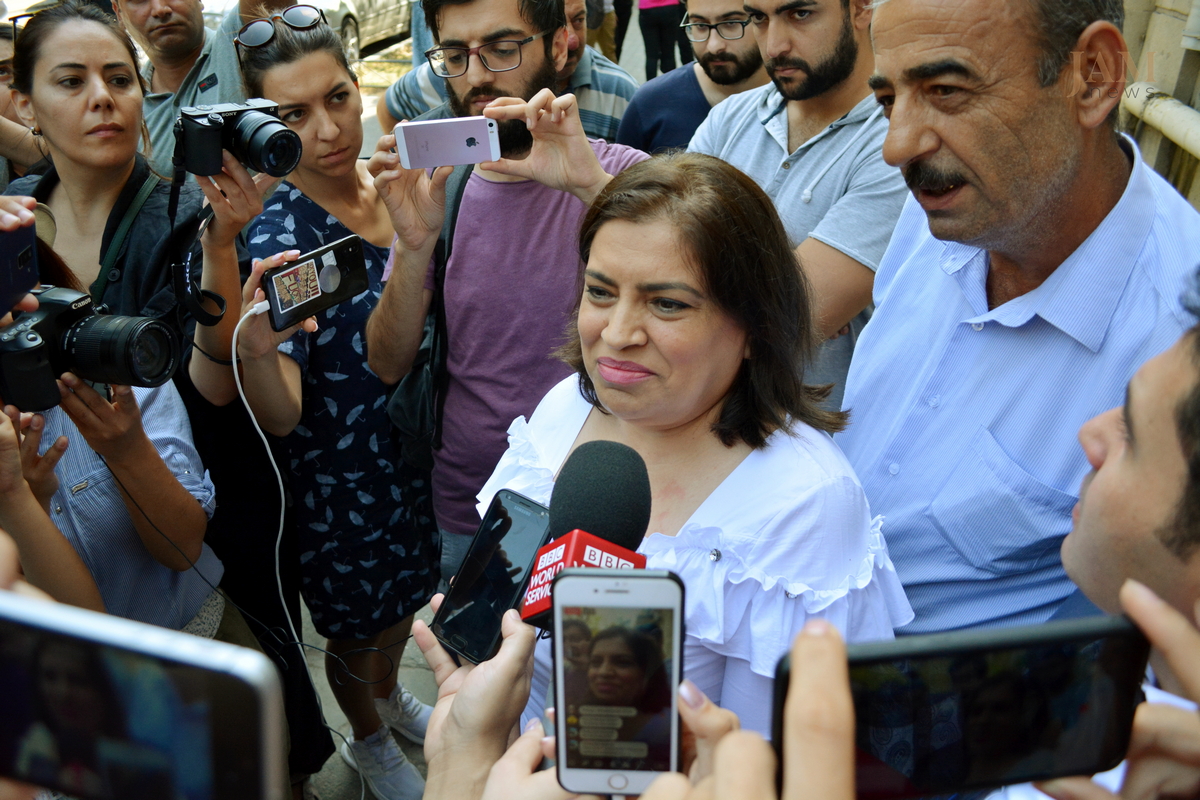
2. Baku’s air quality: a range of bad to very bad
These findings came from a newly opened air quality laboratory. And the saddest thing is that this news did not surprise or shock anyone.
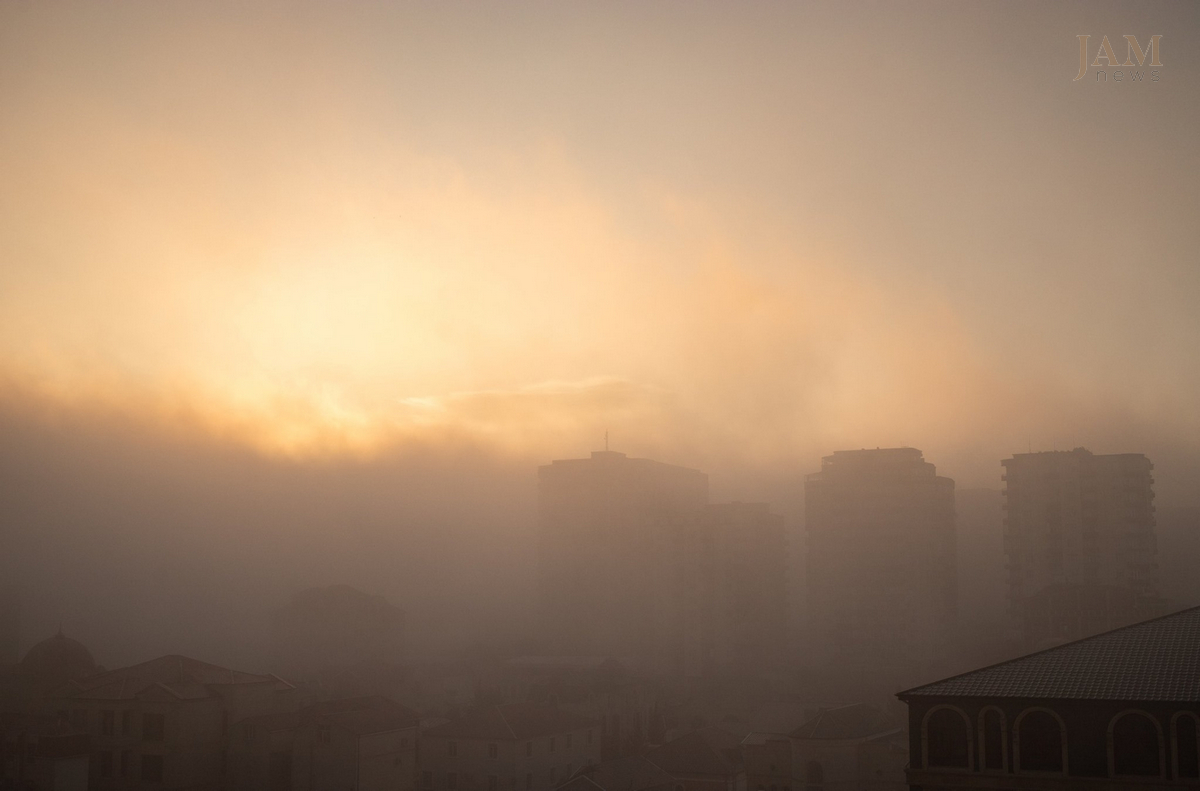
3. The brutal killings of women
There was not so much a surge of domestic violence in Azerbaijan this year, but rather a surge of interest in the issue. Unfortunately, it is impossible to talk about the data itself, when government agencies do not keep statistics on “gender” killings.
This data needs to be read in ‘manually’ from news reports about egregious cases that make their way into the press, and only then because the police sometimes have to talk about crimes in order to demonstrate their work.
A husband stabbed his wife 25 times in a row, in front of children, on the street, in broad daylight. Thanks to the relatively nascent Azerbaijani feminist movement, activists forced the public to think and talk about the event.

Good news
1. Amnesty of political prisoners
On March 16, the president signed a pardon decree, releasing 399 people, including about 50 political prisoners, to the delight of civil society. However, there is little to be thankful for here: none of these people should have been in prison at all.
It was especially joyful to see the “prisoners of the monument” – Bayram Mammadov and Qiyas Ibrahimov, who in 2016 received 10 years in prison after the appearance of a ‘seditious inscription’ on a monument to former president Heydar Aliyev – go free.
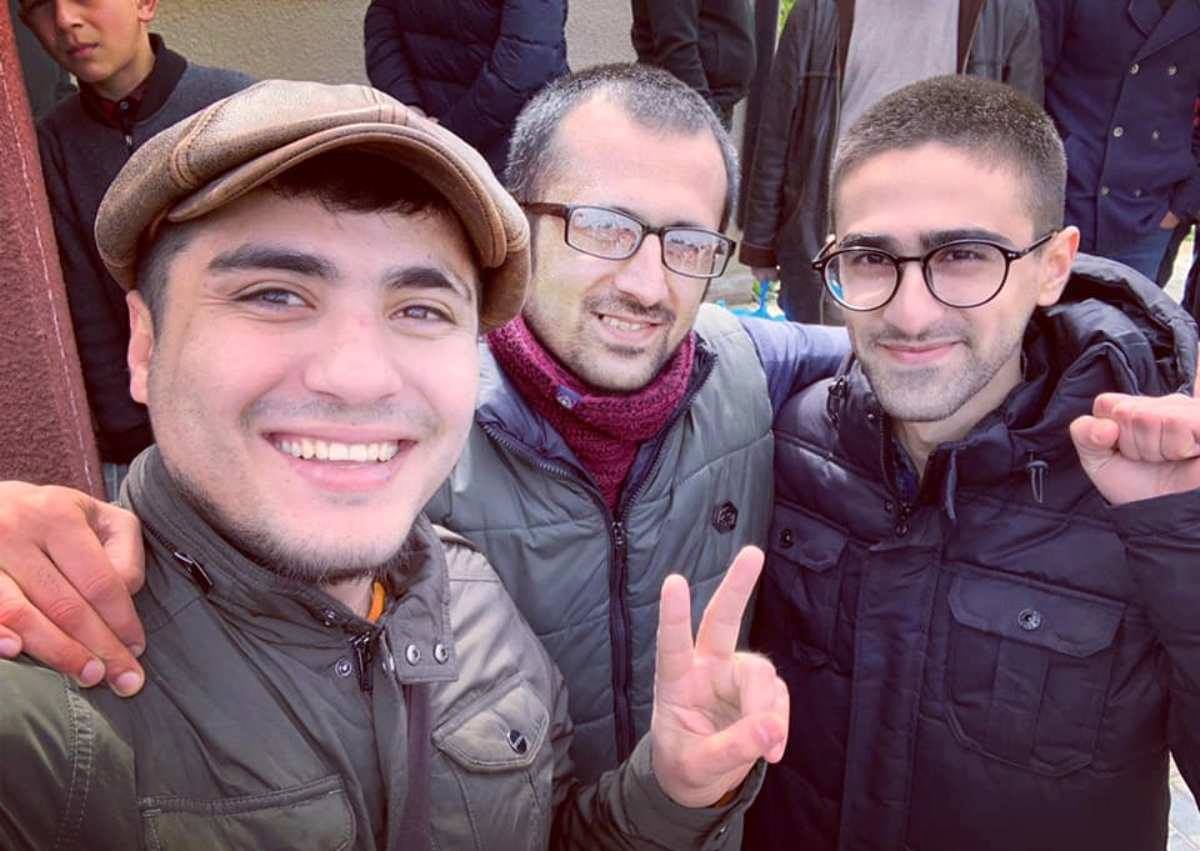
2. Police interference unable to thwart feminist procession
2019 in Azerbaijan was marked by feminism. This relatively young movement differs from others in that: a) feminists do not have a leader and this is a conscious risk reduction strategy; b) with its fairly “spontaneous” organization, they achieve their goals better than the opposition itself.
For example, in October they organized a procession in the center of the city, which the police fiercely resisted, but to which they yielded in the end.
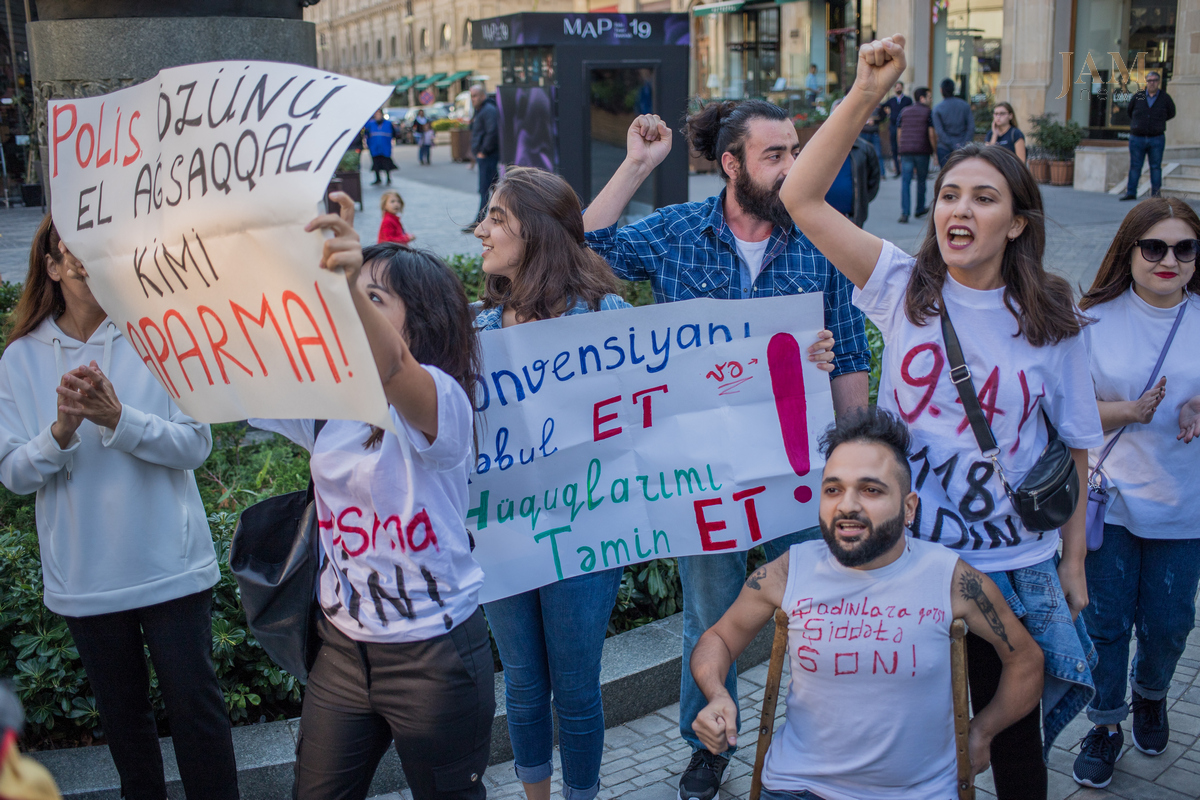
3. Blogger, political prisoner Mehman Huseynov released
In January 2019, famous blogger Mehman Huseynov left prison after serving two years.
Shortly before his release, he had been charged with beating a guard, and it looked like he would be sentenced to a new prison term. Mehman went on hunger strike in prison. A protest campaign began: and hunger strikes of solidarity were held, in addition to a rally of many thousands and an appeal to the European Parliament.
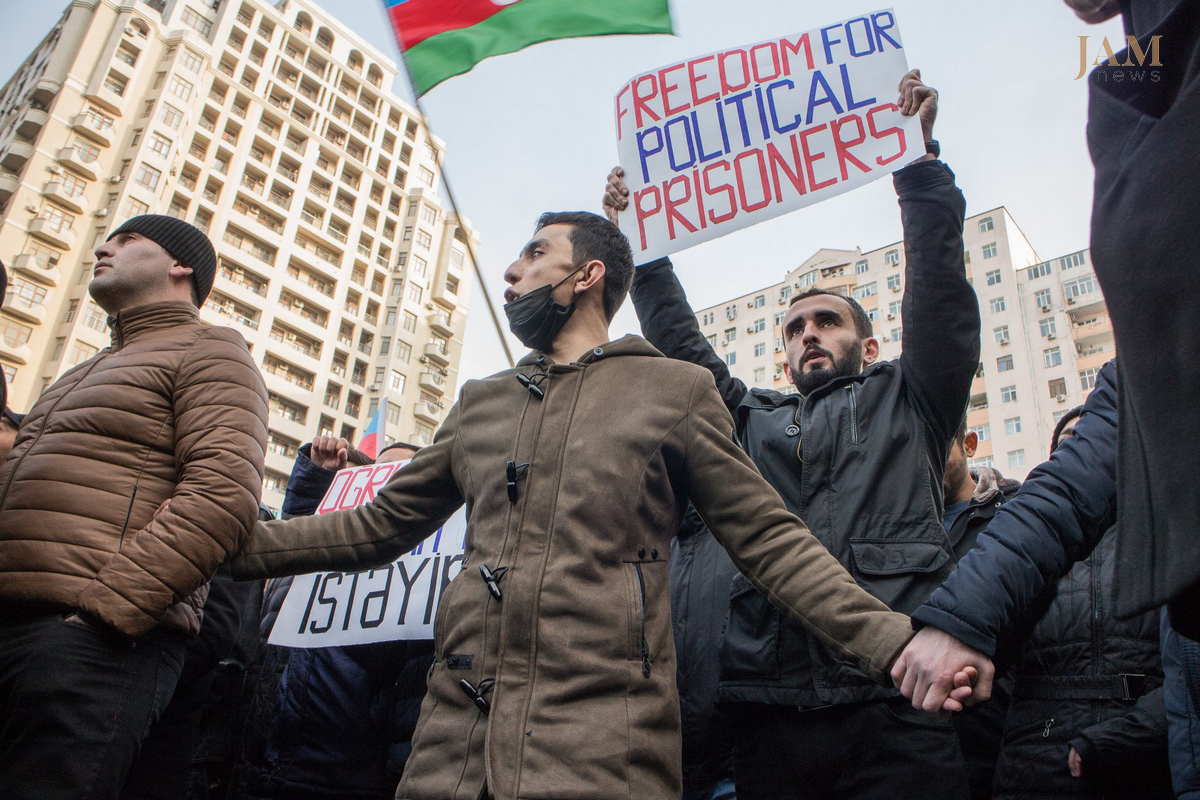
As often happens with us, this did not take place without an element of the absurd.
For example, a hunger strike in Azerbaijan lasts only until the stomach aches.
The intention to sacrifice oneself for the country’s democratic future can be replaced by friendliness to the authorities, and vice versa.
The opposition exaggerates the number of people who came to the rally, as much as the authorities downplay it.
However, Mehman’s case broke the former pattern that a person sent to prison in Azerbaijan cannot be freed by society.
The Azerbaijani protest movement, albeit slowly, is learning to set goals and achieve them. One can even hope that the next decade will be a turning point in the history of Azerbaijan.


















